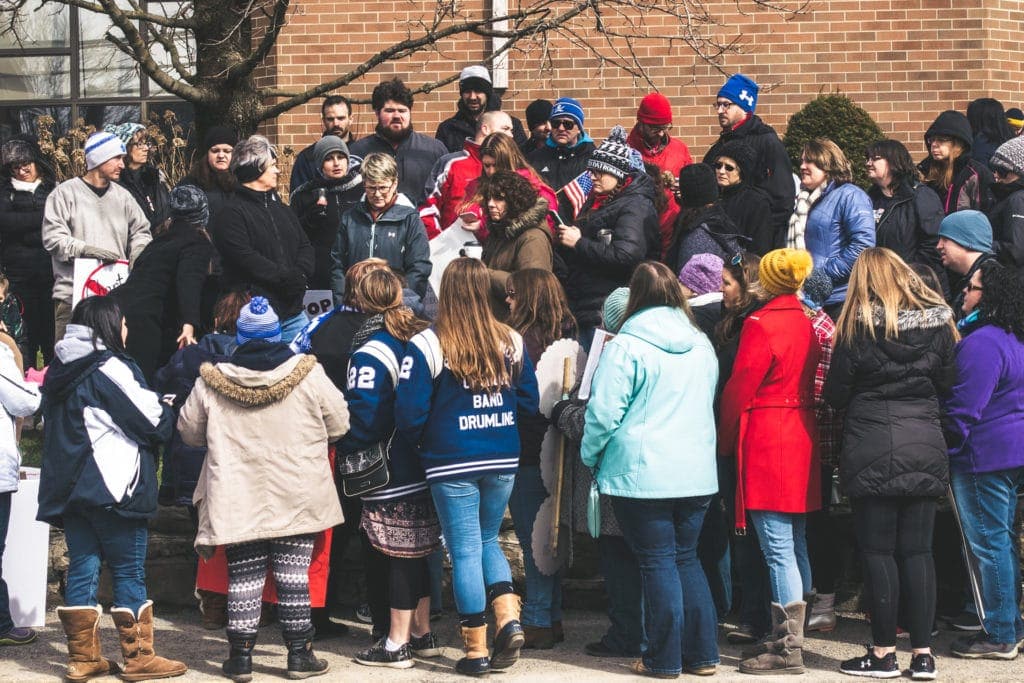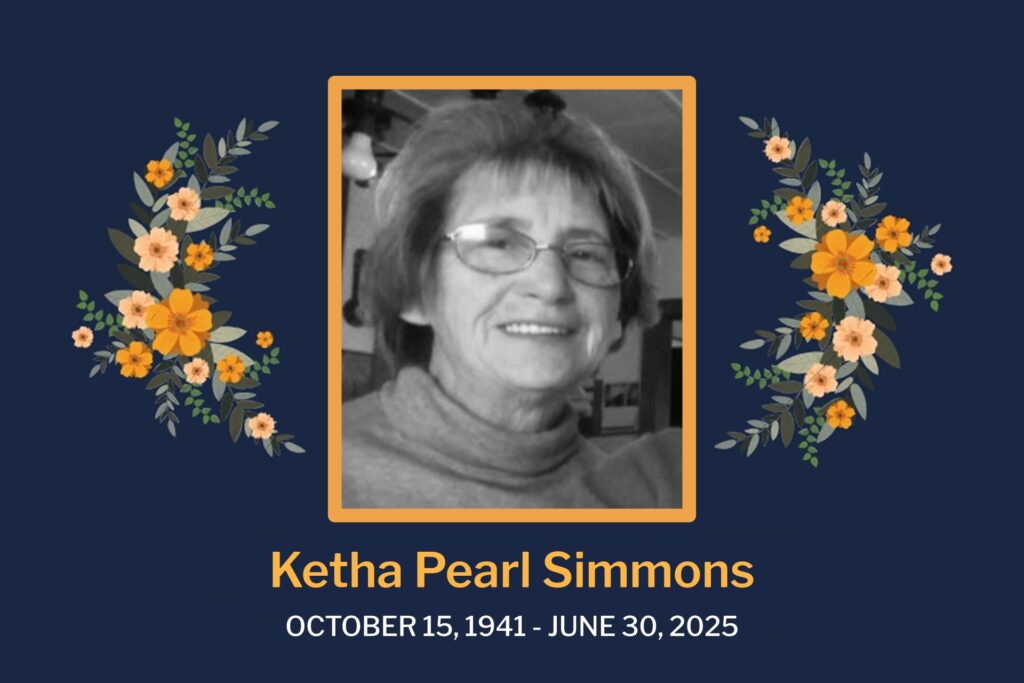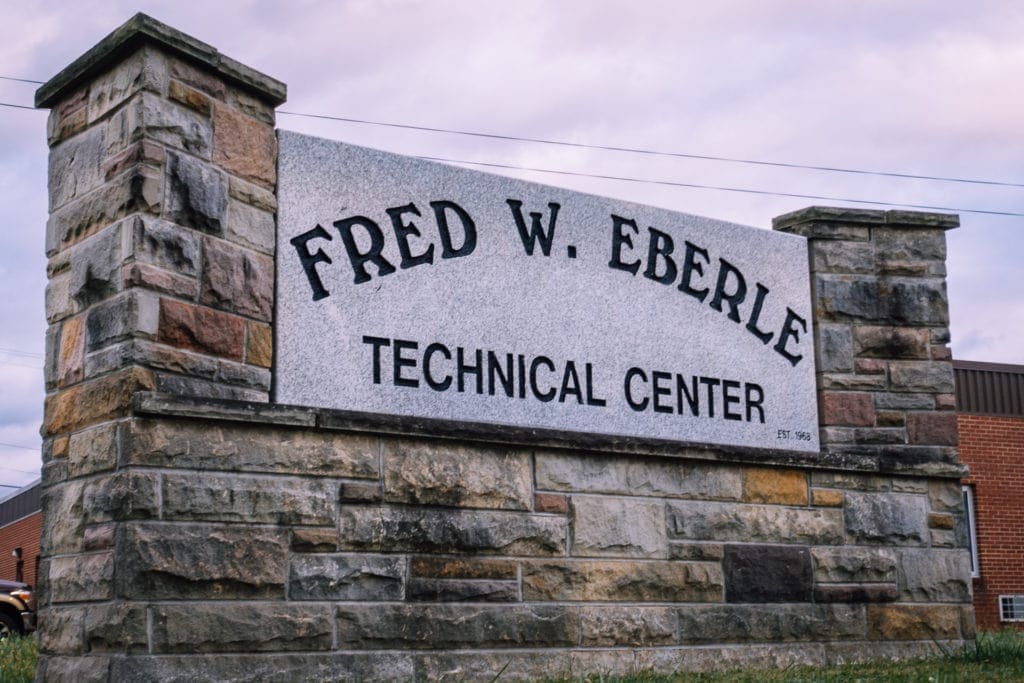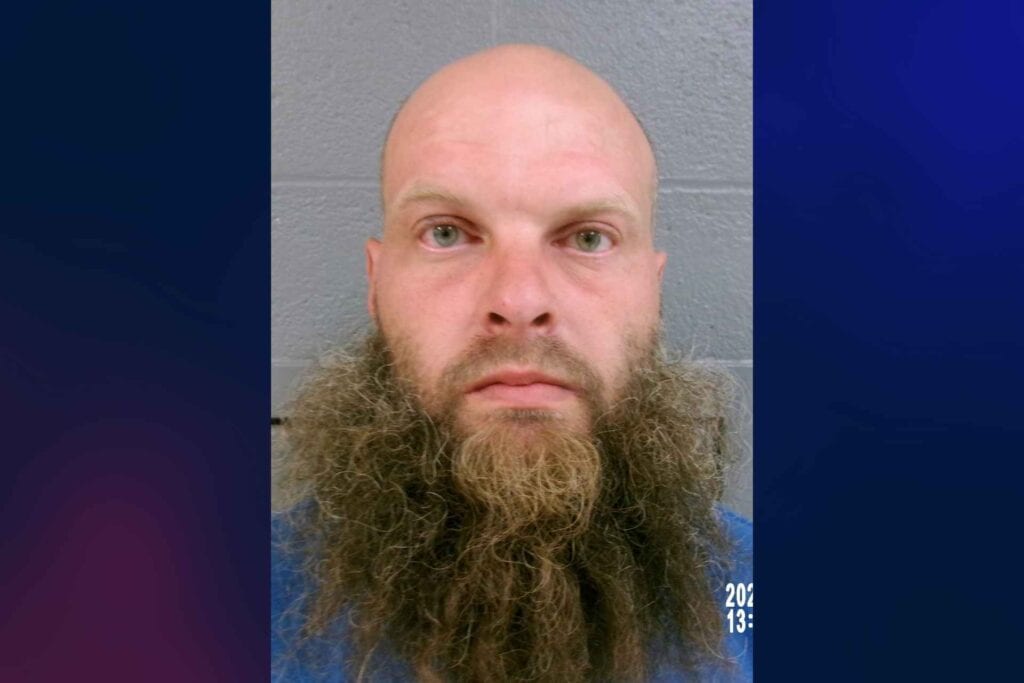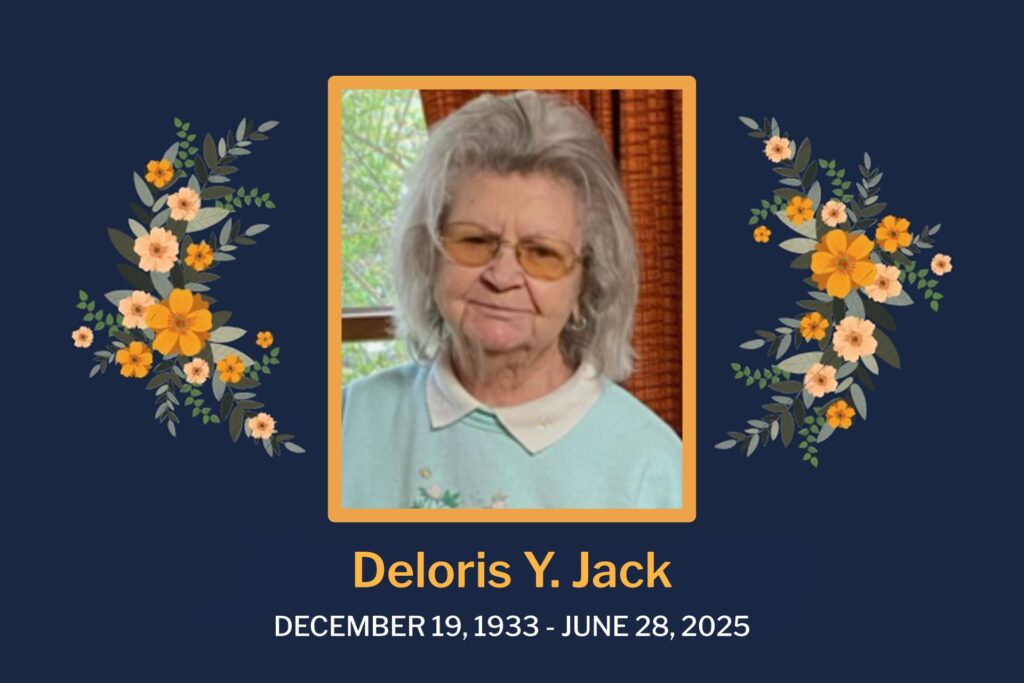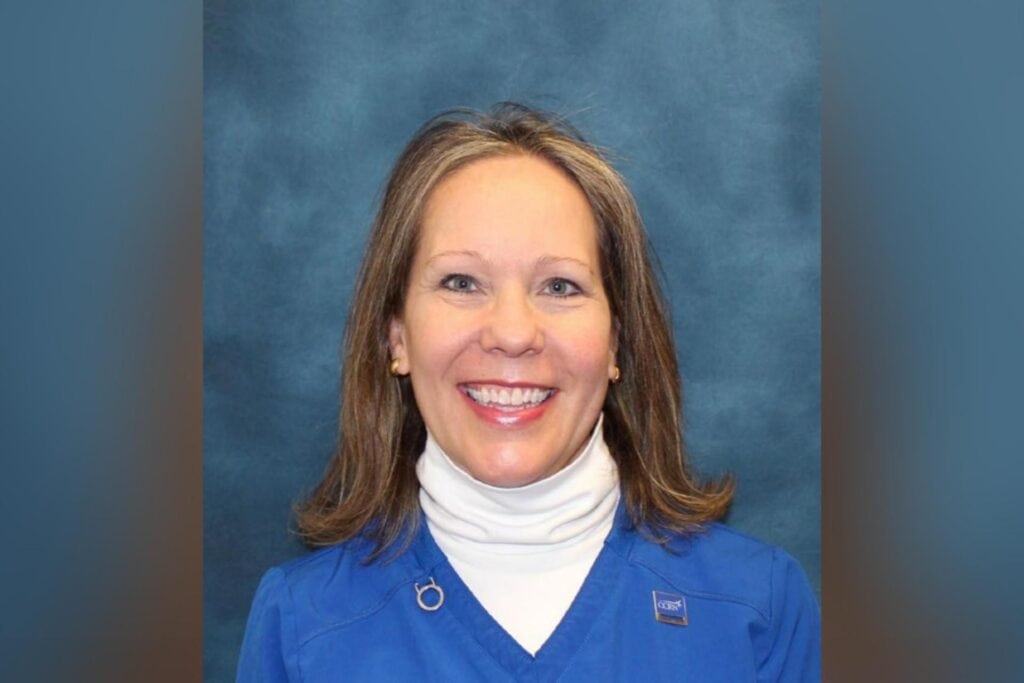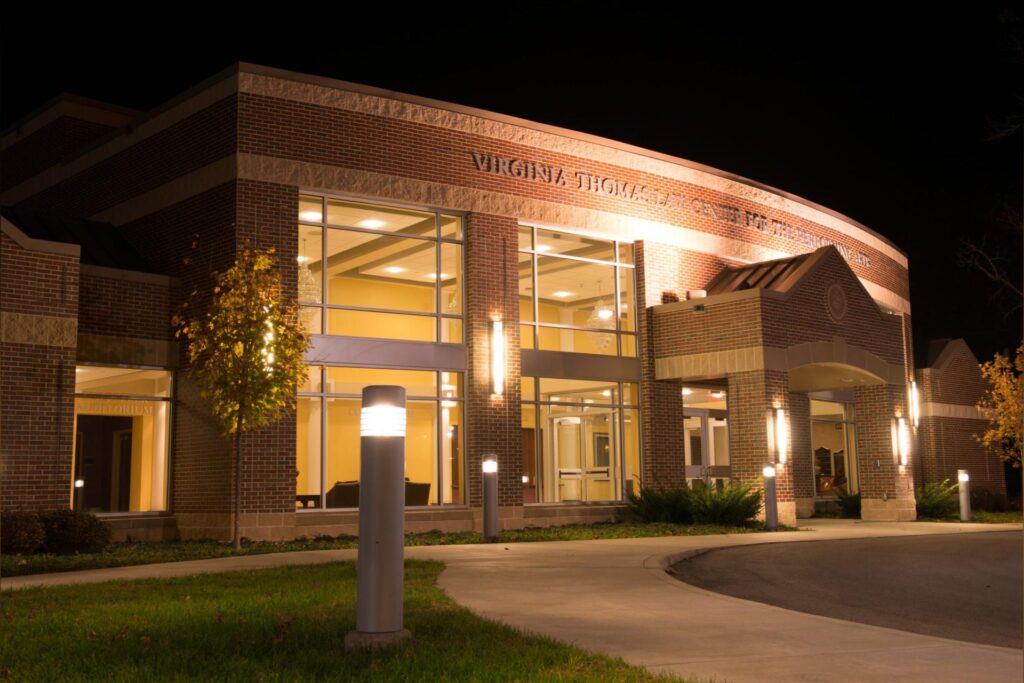Is the education bill dead? Maybe.
Is the strike over? Not yet.
West Virginia school employees announced Tuesday night that they would strike for a second day after expressing a deep distrust of legislators despite the House of Delegate’s decision to indefinitely postpone discussion on Senate Bill 451, the education ‘omnibus’ bill.
In a whirlwind session Tuesday, the House voted 53-45 to table the bill. Del. Carl ‘Robbie’ Martin (R-Upshur) voted to table the bill, while his brother, Patrick Martin (R-Lewis), and Caleb Hanna (R-Webster) both voted to keep the discussion alive.
In the words of Charleston Gazette reporter Phil Kabler, a motion to postpone indefinitely is the “most deadly” form of tabling a bill. The only way to bring it back up for discussion now is a motion to reconsider the vote.
Teachers went on strike Tuesday to protest the legislation, which they feel would gut public education in West Virginia by implementing charter schools and educational savings accounts. They paid a personal cost in doing so: when the bill died, school employees also lost out – for now at least — on a 5 percent pay raise and other benefits, such as a $250 tax credit to purchase school supplies.
By 8:50 p.m., Upshur County had officially canceled school Wednesday (due, at least in part, to an impending winter storm).
A group of employees gathered in front of Chapel Hill United Methodist Church earlier in the afternoon to protest the bill and spread the word about why they feel it will harm Upshur County schools.
Buckhannon Academy Elementary School teacher Ann Osburn, the local WVEA representative, said school employees were disappointed to be back on strike just one year after a nine-day walkout.
“We are very disappointed in Charleston,” Osburn said. “We were out here last year, and now we’re here again. Is this going to be a continuous thing, every year? We don’t want that. We need some new people down there who are going to be for public education.”
Amongst the crowd, there was a deep distrust in the Legislature, even after it appeared the omnibus bill was dead.
“We’re still worried, because at this point, anything could happen,” Osburn said. “There’s still time, so we’re not saying it’s a win yet.”
Part of that skepticism comes from last year, when public employees were given a one-time raise and promised a permanent fix for PEIA. Despite holding multiple meetings throughout the year, no action on PEIA ultimately resulted.
“[PEIA] is not fixed yet,” Osburn said. “After that process, we know we can’t believe a thing that they tell us.”
Ultimately, Osburn said school employees walked out to protect public education and the children they serve, even knowing the omnibus bill includes raises.
“We’re here for the kids,” Osburn said. “Charter schools in our communities would take away from public education. [Legislators] also want to get special needs students out of the school and offer the parents money to stay home and homeschool them with educational savings accounts.”
She hopes the Legislature will bring back the beneficial pieces of the bill, one at a time, and vote on each issue separately.
“The bill needs to be torn apart and each thing needs to be separate,” Osburn said.
West Virginia governor Jim Justice agrees.
In a press conference Tuesday afternoon, Justice asked employees to return to school now that the bill had been tabled. He also requested legislators to introduce a ‘clean’ bill to give public employees a 5 percent raise, something the governor repeatedly promised over the past year.
“Today, right now, I’m calling on the legislators to pass my pay raise bill,” Justice said. “The bill I sent up. The clean bill. That’s a raise for all government employees. There’s a real opportunity to move forward here, and that’s the first step.
“We made a commitment to reward our educators. We made a commitment to reward all state employees, because we have these surpluses.”
Late Tuesday afternoon, a bill to increase compensation for State Police and school employees did appear on the House Finance Committee agenda – House Bill 2730.
Justice also said the Legislature should take up other individual bills, such as increasing the school aid formula for small counties and a measure to support school counselors.
In turn, he asked teachers to return to the classroom Wednesday.
“I’m calling on you to go back to work,” Justice said. “Give this process now a chance to really work.”
However, Senate president Mitch Carmichael, one of the primary proponents of the education omnibus bill, released a statement saying he would not support a pay raise alone.
“Today’s action by the House of Delegates on comprehensive education reform is a delay, not a defeat,” Carmichael said in the statement. “There is a vital need to reform West Virginia’s education system, and I do not believe that any true transformation comes through pay raise alone. Our families deserve competition, choice and flexibility. The 18 members of the Senate who relentlessly pursued giving families that option will not stop working toward that goal…
“I am disappointed, but let me be clear: I am not defeated. In the Senate, ‘tired of being 50th’ isn’t just a clever slogan. It’s a call for action, and we will act.”
Brent Kimble, a social studies teacher at Buckhannon-Upshur High School, said he thought last year’s strike would be the only one of his career. But he felt three big issues in the current bill would harm public education and divide the ‘haves’ and the ‘have-nots.’
“I went into this field knowing full well that [a strike] could happen, but my intention was that it was only going to happen every 30 years or so,” Kimble said while standing with his fellow employees in front of Chapel Hill. “After last year, my thought process was, ‘I’ll never have to be out here again.’ The fact that we’re back here, it just shows a real lack of respect towards education in West Virginia, and really I think that’s more detrimental than any piece of legislation.”
Kimble specifically pointed to charter schools, educational savings accounts and locality pay as items in the bill that would harm counties like Upshur.
“Charter schools, taking away public funding for the privatization of education, is not a good idea. It’s too detrimental to our local community. Educational savings accounts … the problem is, how do you regulate them? Every time people question this at the state level, no one seems to know the answer. The fact is, you’re basically creating an additional entitlement program that we have no ability to regulate or oversee.
“The third one, which I think is a bigger issue, especially here in Upshur County, is locality pay. It creates a divide between the ‘have’ counties and the ‘have-not’ counties. Just because you have a larger tax base or a higher population, does that mean you have the right to more qualified teachers, more resources, more service personnel, better buildings than some of your ‘have-not’ counties?
“I find it really sad. I feel the folks of Upshur County, the kids of Upshur County, are entitled to just as high of quality education as anyone else around the state.”
